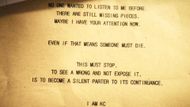Netflix's newly released true-crime series The Kings of Tupelo: A Southern Crime Saga takes viewers back to Tupelo, Mississippi—a town known for the birthplace of Elvis Presley. In this true-crime saga, directors Chapman Way and Maclain Way have highlighted the vibrant place and the startling unfolding of a complex and unusual tale.
The Kings of Tupelo: A Southern Crime Saga consists of just three episodes, making it easier for viewers to dive into Tupelo's shadowy past. At the heart of the true-crime series is an Elvis impersonator, Kevin Curtis, who was arrested for allegedly sending ricin-laced letters to several high-profile figures, including a former president.
Curtis believed he had unveiled a conspiracy when he found a freezer full of body parts, resulting in an obsession with uncovering the truth. Eventually, the suspicion turned to James Everett Dutschke, a local martial arts instructor and Curtis’s long-time rival.
As unveiled in The Kings of Tupelo: A Southern Crime Saga, authorities found ricin and an order for castor beans at Dutschke's place, which resulted in his arrest. However, the true-crime series revealed another bombshell twist that you can find below.
Five shocking details about Netflix's The Kings of Tupelo: A Southern Crime Saga
If you're interested in a true-crime series that explores dramatic twists, small-town dynamics, and human emotions, do not miss The Kings of Tupelo: A Southern Crime Saga on Netflix. It has revealed some of the most shocking details about Tupelo and its residents, highlighting how dark conspiracies can emerge in small places.
Here are five startling details from The Kings of Tupelo: A Southern Crime Saga that might blow your mind:
1) Ricin-laced notes sent to former president Barak Obama and others

Yes, this actually happened! Ricin-laced letters were sent to former President Obama, Senator Roger Wicker, and Judge Sadie Holland in 2013. One of the letters included disturbing and mysterious references, eventually pointing to Kevin Curtis' investigation of unfolding a conspiracy.
As shown in The Kings of Tupelo: A Southern Crime Saga, the letter read:
"No one wanted to listen to me before. There are still 'Missing Pieces'... Even if that means someone must die. This must stop..."
The letter didn't mention Kevin Curtis' name, but it did mention "KC" in the end, suggesting that the Elvis impersonator sent those deadly letters. Soon, an investigation began, and Curtis was taken under arrest.
2) Kevin Curtis was wrongly accused of sending deadly notes

As the true-crime story unfolds in The Kings of Tupelo: A Southern Crime Saga, it's revealed that Kevin Curtis didn't send the ricin-laced letters to high-profile officials. Curtis denied having sent those letters, and when asked who could have done it, he gave the name of Wayne Newton impersonator Everett Dutschke.
Investigators began searching for evidence that could prove Dutschke's involvement. They followed him around the town and even searched his house. Four days into the investigation, it was found that Dutschke had ordered 100 castor beans through his computer, and ricin hits were also discovered at his house.
Dutschke, who was also a martial artist, was then arrested and sentenced to 25 years in prison. After his conviction, Curtis' name was cleared, and he started leading a regular life again with his family.
3) Kevin Curtis unmasked the illegal body parts trafficking

As mentioned above, Kevin Curtis believed that he had unmasked a huge conspiracy in his town related to illegal organ trafficking. He transitioned from an Elvis impersonator to running his own cleaning business to support his family and soon landed a major contract with the North Mississippi Medical Center.
One random day, while cleaning the morgue, Kevin grew thirsty and opened the freezer to find something to drink. As revealed in The Kings of Tupelo: A Southern Crime Saga, Curtis found several body parts stuffed inside the freezer, including the head of a man he previously saw in an emergency room. This discovery resulted in Curtis' obsession with unmasking the illegal market.
Driven by his urge to find the truth, Kevin Curtis uncovered an alleged black market for human body parts. He claimed that funeral homes played the main role in selling the body parts of deceased individuals in the black market. Despite his efforts, Curtis only faced resistance and skepticism but was determined to expose an alleged illegal market.
Additionally, Kevin Curtis drafted a bill, "House Bill 6631," hoping to stop the illegal black market, and sent it to Steve Holland, a powerful figure and owner of Holland Funeral Directors.
Since Holland operated three of the largest funeral homes in the states, Curtis hoped he would help pass the bill. However, he was shocked when Holland refused to help. Though the Netflix docuseries didn't confirm that Holland was involved, it's one of the shocks that Curtis faced.
4) Everett Dutschke's unbelievable claim: A CIA connection

One of the major twists that will shock most viewers is Everett Dutschke's claim about working with the CIA in the past. A new revelation was made after Curtis' name got cleared and Dutschke went to prison,
The docuseries sheds light on both men, in which Dutschke claimed that he worked for the CIA in 2012 and had sensitive information about terrorism. The former martial artist stated that the information he had was damaging to Obama administration officials and refused to give it.
Everett Dutschke claimed that his refusal to hand over the sensitive information might have led the CIA to frame him. In simple words, he alleged that the CIA had framed him for not revealing the information.
5) Kevin Curtis and Everett Dutschke’s Final Agreement: Dutschke was framed

The final twist in The Kings of Tupelo: A Southern Crime Saga is the agreement between Kevin Curtis and Everett Dutschke that the former martial artist was framed. Curtis initially thought it was Dutschke who framed him, but when he learned about his claims about working with the CIA, he was able to connect the dots.
Curtis found a photo of a well-known attorney and his lawyer with Everett Dutschke and then believed that Dutschke might have been a CIA operative all along. And since he didn't reveal the sensitive information, he got framed.
Continue exploring SoapCentral as we update you with the latest news, TV series, and more!
